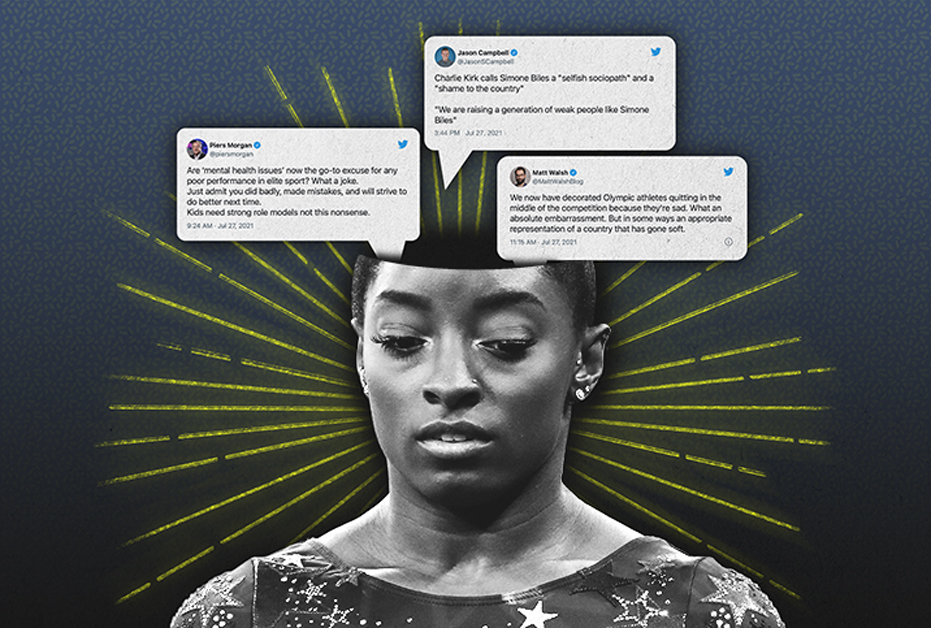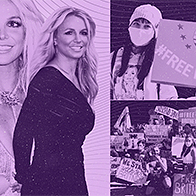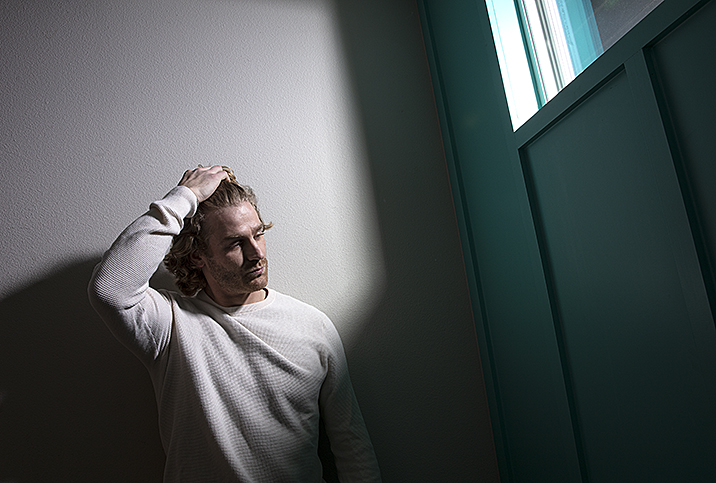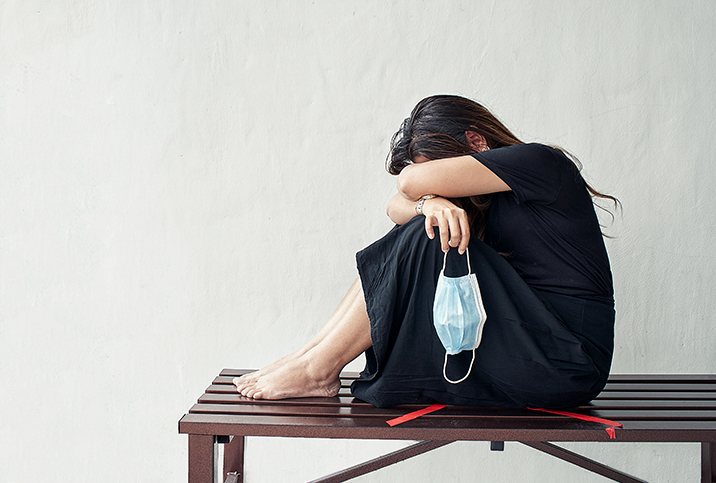Celebrities Shed Light on Mental Health Stigma, But Little Else

On the world stage, Simone Biles' and Naomi Osaka's candor about their mental health was a win for destigmatizing mental health. Numerous articles have been written on how these disclosures will hopefully reduce people's hesitation to seek mental health services.
Despite their profile and exposure, though, it may be far too simplistic to center mental health conversations around wealthy individuals and assert the primary barrier to mental healthcare is just mental health stigma.
Mental health is important for everyone, yet there is far less amplification of voices that experience significant challenges to receiving quality mental healthcare. Focusing solely on stigma ignores how broader structural and historical forces shape how mental health is experienced by different individuals and groups.
When the system fails
Up until the Affordable Care Act—which went into effect in 2010—insurance companies could deny coverage to individuals based on their mental health history. To this day, various structural inequities come into play when a person decides to seek mental healthcare, such as affordability, byzantine insurance processes or finding a therapist that is the right fit.
Furthermore, there is a significant clinician shortage, which frequently occurs within communities that have been historically marginalized.
Delaying or denying access to appropriate and high-quality mental healthcare can have devastating consequences, such as increasing the chronicity of symptoms or the likelihood of suicide. Everyone has mental health needs, regardless of socioeconomic status. Despite this inherent truth, it is people with the most intensive needs that the mental healthcare system fails most frequently, a fact exacerbated by the COVID-19 pandemic.
The need for a platform
Severe mental health diagnoses—such as schizophrenia and bipolar disorder—may include psychotic features, described as conditions that affect the mind up to and including a loss of contact with reality. People diagnosed with these conditions are rarely provided a platform to speak for themselves, in particular those with schizophrenia, although the legal scholar Elyn Saks is a notable exception.
Autism is related to mental health conditions, as psychosis co-occurs with autism at much higher rates than in the general population and is also frequently stigmatized. Autistic people have continuously taken issue with non-autistic people and celebrities being "the voice" of autism. Moreover, autistic adults have stressed that these individuals often promote childhood autism interventions that are traumatic, which some autistic people have likened to the harm of gay conversion therapy. Therefore, sidelining the input of people with a given condition may result in avoidable trauma.
Christa Carlton is an adoption-competent therapist and licensed clinical social worker who works with children who were in foster care. In working with this population, she has heard from adoptees directly about the harm caused when adoption is framed as an exclusively positive experience. This assumption neglects the important contextual factors that must be understood to meet the needs of adopted children.
"Children experience profound losses without adequate space or tools to effectively grieve them," Carlton said. "Unresolved grief can result in a variety of mental health struggles and related challenges, like substance use, housing insecurity and interpersonal challenges."
Beyond the diagnosis: Race
Beyond the particulars of a given emotional or behavioral intervention, other forms of oppression may be enacted when accessing care, such as racism or heterosexism. Unfortunately, people with the most mental health needs often face many forms of oppression and are disproportionately harmed by the mental healthcare system.
Yemesrach Mehari, MPS, has spent many years working in the nonprofit and government sector on programs that serve people experiencing chronic homelessness and/or domestic violence. She sees a deep chasm between how mental health is publicly discussed and those who can actually access social programs.
"From my perspective, hegemony utilizes mental illness to excuse the spectrum of violence perpetrated by white people," Mehari said. "Also, it is a way to gain sympathy for white individuals like a celebrity or politician…you know, a good likable person who might have done something odd or strange. I think in terms of non-white populations being excluded from the narrative of mental health—I think it's purposeful. It's saying that [non-white populations] cannot use it to excuse or explain a behavior—they are violent in nature and unusual/abnormal in behavior."
Unfortunately, pathologizing marginalized populations has continuously and significantly shifted resources away from public health services and toward funding carceral systems—that is, relating to incarceration in prison and predictive policing in minoritized communities.
Allilsa Fernandez, a mental health advocate, recently tweeted: "There is no [prison] abolition without addressing psychosis. The system incarcerates most people with psychosis rather than provide the support and resources needed. Black men with psychosis are disproportionately incarcerated, followed by other Black and Brown people."
Additionally, psychosis is three times more prevalent within the homeless population.
Beyond carceral systems, those with mental health diagnoses are significantly overrepresented within other institutions that exert state power, including having their children put into foster care and being placed under conservatorships/guardianships.
#FreeBritney fans the flames
Lawyer and #FreeBritney advocate BJ Courville discusses the impact of conservatorships on conservatees' mental health and the stigma placed on mental health issues, especially for women. Watch the full interview here.
In 2008, Britney Spears was placed in conservatorship under the pretense of her severe mental health issues. Her 13-year battle to end the conservatorship came into the spotlight this year, especially since the release of the Emmy-nominated documentary by the New York Times, "Framing Britney Spears," in February 2021. After the documentary went live, there was an outpouring of apologies from celebrities and media outlets, as well as those who used their privilege and online platforms to dehumanize and lampoon Spears.
Conservatorships have been described as a form of "civil death," whereby a person can lose the ability to make decisions regarding every aspect of their life. This can include making their own reproductive choices, losing the right to vote or the ability to express their gender identity.
In the wake of Spears' June 2021 court case on the matter, the media has increasingly amplified the voices of disability activists who have long asserted conservatorships are rife with abuse and deny disabled people their fundamental human rights.
Celebrities using their platforms to advocate for mental health treatment is an overall positive in the battle against the stigmas from past and present. However, the focus on this specific issue could lead you to believe that one cause creates one problem, when in fact, many aspects contribute to many outcomes, such as representation, access equality and racial biases.
Though promoting mental health awareness is inherently good, it's our responsibility to ensure these messages cover the full, wide spectrum of problems keeping people from living their best lives.




















